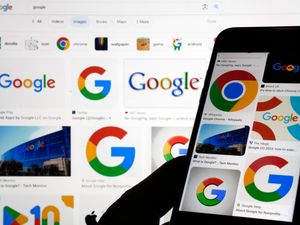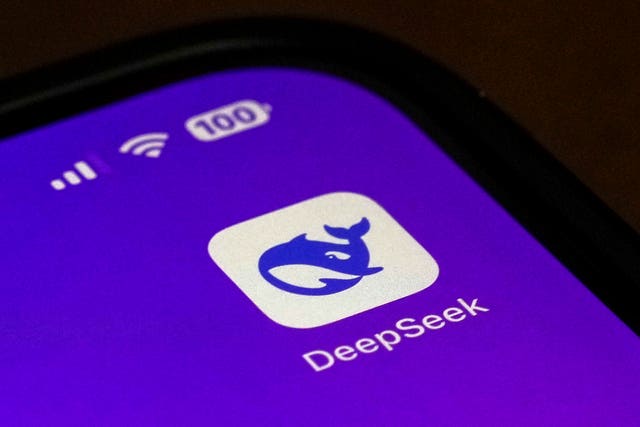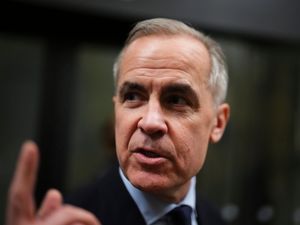Google’s rising holiday season ad sales not enough to ease AI worries
Revenue growth in the Google Cloud division tethered to the AI craze was not as robust as had been anticipated.

Google’s digital ad sales continued to grow at a healthy clip during the holiday season, but that was not enough to offset investors’ worries about whether its big bet on artificial intelligence will be as lucrative as once envisioned.
The October-December results released on Tuesday by Google parent Alphabet Inc showed the company is continuing to reap even more profits from its dominant search engine and other peripheral services.
Alphabet earned 26.5 billion dollars (£21.2 billion), or two dollars and 15 cents per share, during last year’s final quarter, a 28% increase from the same time during the previous year.
Revenue rose 12% from the previous year to 96.5 billion (£77.2 billion). The earnings eclipsed analyst forecasts of two dollars and 13 cents per share, but the revenue fell slightly below projections, according to FactSet Research.
More importantly, revenue growth in the Google Cloud division tethered to the AI craze was not as robust as had been anticipated.

That letdown contributed to a more than 8% drop in Alphabet’s stock price after the numbers came out. The downturn reversed a recent rally that had elevated Alphabet’s shares to a new all-time high earlier on Tuesday during the regular trading session.
“The reaction underscores concerns that rivals like Microsoft, with its OpenAI partnership, are better positioned to convert AI hype into revenue,” said Investing.com analyst Jesse Cohen.
But the AI-generated overviews that Google has been increasingly displaying in at the top of its search results appeared to be helping to bring in more advertising. Google’s ad sales climbed 11% from the previous year to 72.5 billion dollars (£58 billion) to exceed analyst estimates.
“The early signs suggest that AI is working for Google,” said Jim Yu, chief executive of BrightEdge, which helps websites rank higher in search results.
“What it does for Google is keep more of the digital experience happening within its search engine. And by the time they send someone to another site, shoppers and readers have already gotten further down their journey. So that visitor is worth a lot more to an advertiser.”
But Google also has been spending billions of dollars on its AI expansion, a huge investment that some investors are questioning after the Chinese start-up DeepSeek found an effective way to deploy similar technology at a fraction of the cost.
Alphabet is expecting its ongoing AI expansion to increase its capital from about 60 billion dollars last year to 75 billion dollars this year.
Alphabet chief executive Sundar Pichai sought to reassure investors all that spending will pay off during a Tuesday conference call by emphasising the way AI is helping to boost Google’s fortunes by attracting more search traffic and making other services more popular.
“The company is in a great rhythm and cadence, building, testing and launching products faster than ever before,” Mr Pichai said.
Before the fourth-quarter results came out, Google made a change in its AI principles signalling it may be more open to selling the technology in areas that it had previously indicated it would avoid.
The revised principles removed previous commitments not to deploy AI in weaponry or surveillance that had been in place since 2018. Mr Pichai did not address the change during Tuesday’s conference call and Google did not immediately respond to a request for comment.
The uncertainty over AI is not the only worry hanging over Google.
The Mountain View, California company also is facing a regulatory crackdown in the US, by far its most lucrative market, raising the spectre that its revenue could be undercut.
After weighing the evidence presented during a high-profile trial, a federal judge last year declared Google’s search engine is an illegal monopoly — a decision that has opened the door for regulators to propose forcing the company to sell its Chrome web browser.
Court hearings on how Google should be punished for its abuses in the search market are scheduled to begin in April, with a decision anticipated before autumn.
Besides the legal assault on its search engine, Google also has been ordered to tear down the barriers protecting its Play Store for Android smartphone apps.
That ruling is currently on hold while Google appeals. Google is also awaiting a ruling in an antitrust trial in Virginia revolving around the technology underlying its digital ad network.





